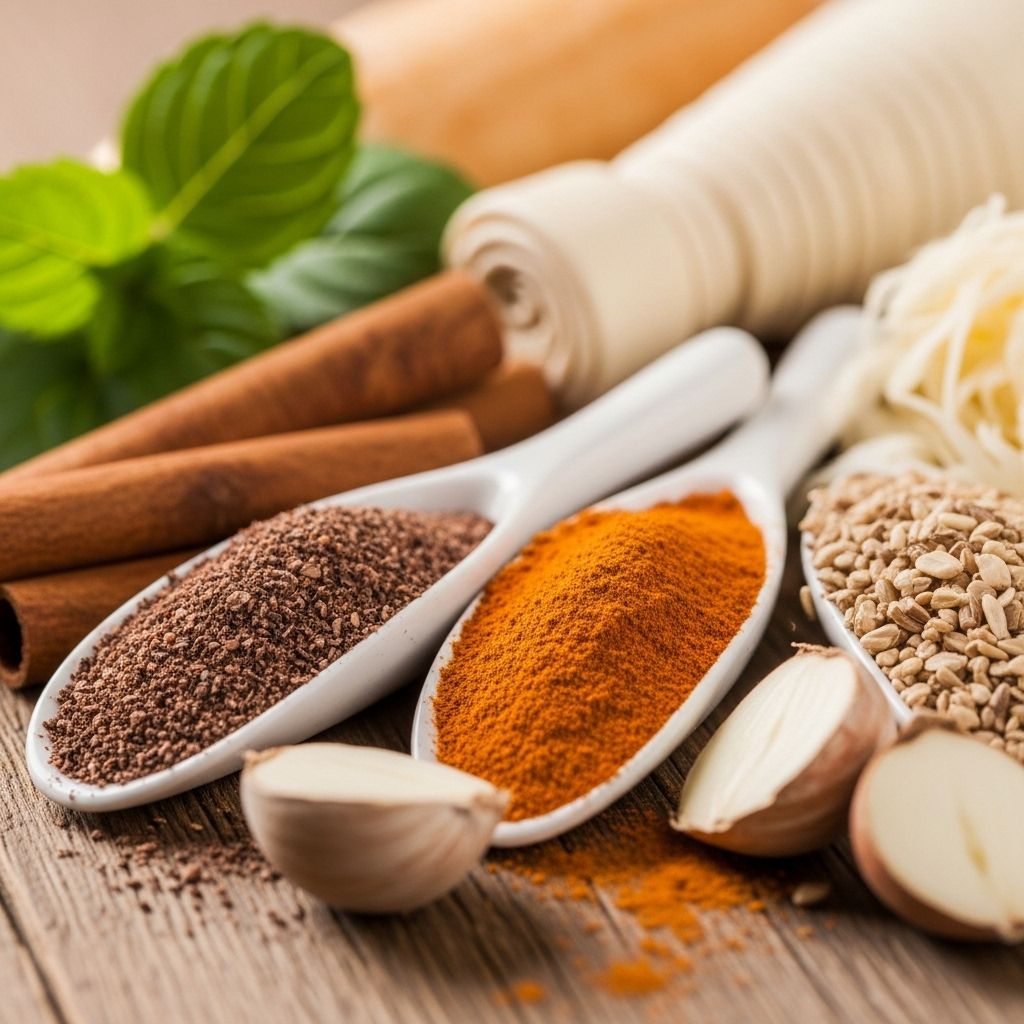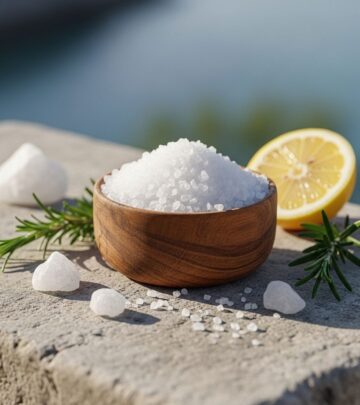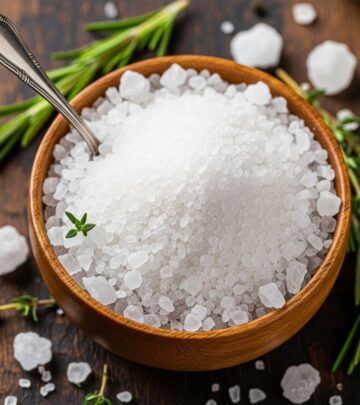6 Effective Home Remedies for Gum Pain Relief
Pantry ingredients can bring gentle comfort when oral irritation flares.

Gum pain can affect anyone, bringing discomfort and disrupting daily life. Tender, swollen, or bleeding gums may result from factors such as gum disease, mouth sores, hormonal changes, improper oral hygiene, or dental work. While persistent gum pain warrants a visit to the dentist, several natural remedies can offer fast relief at home. This comprehensive guide covers six effective home treatments—using everyday ingredients—to soothe gum discomfort and promote oral health.
Understanding Gum Pain: Common Causes and Symptoms
Gum pain can be mild or severe, temporary or ongoing. Recognizing possible triggers and symptoms helps you act quickly and choose the most effective remedy.
- Gingivitis: Early-stage gum disease causing red, swollen, bleeding gums.
- Canker Sores: Small, painful ulcers on the gums.
- Dental Appliances: Braces, dentures, or retainers may cause friction or sores.
- Hormonal Changes: Pregnancy, menstruation, or menopause can leave gums tender.
- Oral Infections: Fungal or bacterial, such as oral thrush or periodontitis.
- Poor Oral Hygiene: Plaque buildup leads to infection and inflammation.
See a dentist if your gum pain is severe, accompanied by pus or high fever, or lasts more than a week.
Top 6 Home Remedies for Gum Pain
These natural, science-backed remedies can provide quick relief and reduce swelling and irritation. Use them alone or in combination for best results.
1. Mouth Rinse with Saltwater
A saltwater rinse is a time-honored method to reduce gum pain, inflammation, and speed up healing. Salt has natural antibacterial effects that help guard against infection and promote tissue repair.
- Warm up a cup of water (do not boil).
- Dissolve 1 teaspoon of salt into the water and stir well.
- Take a mouthful and swish it around your gums for 15–30 seconds.
- Spit out; do not swallow. Repeat with the remaining water.
- Use this rinse twice daily until the pain and swelling subside.
This remedy is especially helpful after dental procedures and for general gum maintenance.
2. Apply Hot or Cold Compress
Compress therapy helps calm nerve sensitivity, reduce swelling, and ease pain.
| Type | How to Use |
|---|---|
| Cold Compress | Wrap an ice pack or ice cubes in a clean cloth. Place it on the cheek over the sore area. Hold for up to 10 minutes. Repeat 2–3 times daily. |
| Hot Compress | Soak a cloth in warm water (not hot). Wring out extra water. Apply to the face near the aching gum for 10–15 minutes. Repeat as needed. |
Always wrap compresses to protect your skin and avoid extreme temperatures.
3. Herbal and Spice Paste: Turmeric & Clove
Both turmeric and clove are staples in many kitchens and contain potent compounds that relieve discomfort and infection:
- Turmeric: Possesses anti-inflammatory and antimicrobial effects, supporting gum healing.
- Clove: A strong natural analgesic and antibacterial agent, widely used in traditional remedies.
How to Make and Use Herbal Pastes:
- Mix turmeric powder or clove powder with a few drops of warm water to make a thick paste.
- Apply directly onto sore gums using a clean finger or cotton swab.
- Allow it to sit for 5 minutes before rinsing gently with lukewarm water.
- Repeat 1–2 times daily until relief is noticed.
This natural approach helps control infection and swelling without harsh chemicals.
4. Topically Apply Used Teabags
Green tea and black tea bags contain tannins—plant compounds that reduce inflammation and soothe pain. They also have antimicrobial properties beneficial for oral health.
- Brew a tea bag (green or black) in hot water for 2–5 minutes.
- After use, allow the bag to cool to a comfortable temperature.
- Place the damp tea bag gently on the sore area of your gums.
- Hold in position for 5 minutes.
- Repeat this process once or twice daily as needed.
This simple remedy offers a soothing effect and can minimize bleeding or tenderness quickly.
5. Clove Oil Application
Clove oil is a powerful natural analgesic (pain reliever) and has long been used to treat oral discomfort. Its main component, eugenol, provides a numbing effect and fights bacteria.
- Dip a clean cotton ball or swab in clove oil.
- Gently dab onto the affected gum area. Do not use large amounts, as too much may cause burning.
- Alternatively, mix a few drops of clove oil with a carrier oil like olive oil before applying.
- Use up to two times daily for temporary relief.
Always use diluted clove oil to avoid irritation, especially for sensitive mouths.
6. Eat a Healthy Diet and Avoid Irritants
Your daily habits can play a big role in healing gum pain. Supporting your oral health from the inside can make a difference.
- Consume foods rich in vitamins C and D, and calcium (e.g., oranges, berries, leafy greens, yogurt, eggs).
- Stay hydrated to help saliva flush out bacteria naturally.
- Avoid: tobacco products, excessive alcohol, spicy foods, and sugary snacks that can aggravate gums.
- Chew slowly and gently. Avoid hard, crunchy foods during flare-ups.
Additional Self-Care Tips for Gum Pain Relief
- Brush and floss gently with a soft-bristled toothbrush to prevent further irritation.
- Rinse your mouth after meals to remove food particles and reduce plaque buildup.
- Avoid harsh mouthwashes with alcohol that may dry and irritate sensitive gums.
- Use over-the-counter oral gels or numbing agents (like benzocaine or clove-based gels) as short-term relief.
Consult a dentist about prolonged use or reactions. - Monitor symptoms: If gum pain becomes chronic, see your dentist to rule out underlying conditions.
Preventing Gum Pain: Oral Hygiene and Lifestyle Practices
Maintaining good oral health is the best long-term strategy for preventing gum pain and disease.
- Brush gently but thoroughly twice daily using fluoride toothpaste.
- Floss at least once daily to remove plaque and debris from between teeth.
- Replace your toothbrush every 3 months or after any illness.
- Schedule regular dental check-ups (every 6 months, or as recommended).
- Limit foods and drinks high in sugar, which encourage bacterial growth and gum inflammation.
- Avoid tobacco and reduce alcohol consumption, as both harm your gum tissue.
- Address mouth breathing, teeth grinding, or poorly fitting dental appliances with professional help.
When to See a Dentist
While home remedies can offer rapid relief, consult your dentist promptly if you experience:
- Persistent gum pain lasting a week or more
- Heavy bleeding, pus, or severe swelling
- High fever or chills accompanying oral pain
- Loose teeth, difficulty chewing, or swallowing
- Recurring sores or lumps in the mouth
Early professional care protects your teeth and prevents complications such as abscesses or periodontitis.
Frequently Asked Questions (FAQs)
Q: Can gum pain go away on its own?
Mild gum pain from minor irritation or a single sore can resolve with improved oral hygiene and home care. However, gum pain caused by infection or gum disease usually requires active treatment, and recurrent pain should always be investigated by a dental professional.
Q: Are these home remedies suitable for children?
Most remedies such as saltwater rinses, hot/cold compresses, and topical teas are generally safe for children—but always use gentle, diluted solutions and avoid clove oil for very young children. For persistent or severe symptoms, consult a pediatric dentist.
Q: How do I know if my gum pain means gum disease?
Symptoms of gum disease include persistent redness, swelling, bleeding on brushing or flossing, bad breath, and receding gums. If you notice these signs, consult your dentist for proper evaluation and intervention.
Q: Can I use these remedies after dental surgery or a tooth extraction?
Saltwater rinses and cold compresses are often recommended post-procedure, but avoid vigorous swishing, hot compresses, or strong spices until your dentist confirms healing. Follow all post-surgical instructions closely.
Q: When should I avoid home remedies and seek professional help?
Seek immediate dental care for severe pain, pus, swelling that spreads, persistent fever, or if oral pain interferes with eating or sleeping. These may indicate a serious infection requiring prescription treatment.
Final Thoughts: Restoring Gum Health Naturally
Gum pain can disrupt everyday comfort and oral function. Integrating these home remedies—alongside proper oral hygiene and regular dental visits—helps reduce discomfort, hasten healing, and minimize recurring gum issues. For persistent or severe symptoms, always trust your dentist’s guidance.
References
- https://www.deekaydental.com/10-simple-ways-relieve-painful-gums/
- https://www.stylecraze.com/articles/home-remedies-for-gum-pain/
- https://www.medicalnewstoday.com/articles/326107
- https://www.stylecraze.com/author/sanchari_bhattacharya/
- https://www.lakeviewfamilydentists.com/2024/06/28/natural-ways-to-cure-gum-disease/
- https://www.evergreendentalgroup.com/the-truth-about-gum-disease-home-remedies/
- https://www.riggsfamilydental.com/five-at-home-dentist-approved-tips-to-soothe-swollen-gums-fast/
- https://www.rejuv-health.com/blog/gingivitis-home-remedies/
- https://risingsmilesdentistry.com/how-to-cure-gum-disease-without-a-dentist/
Read full bio of medha deb












